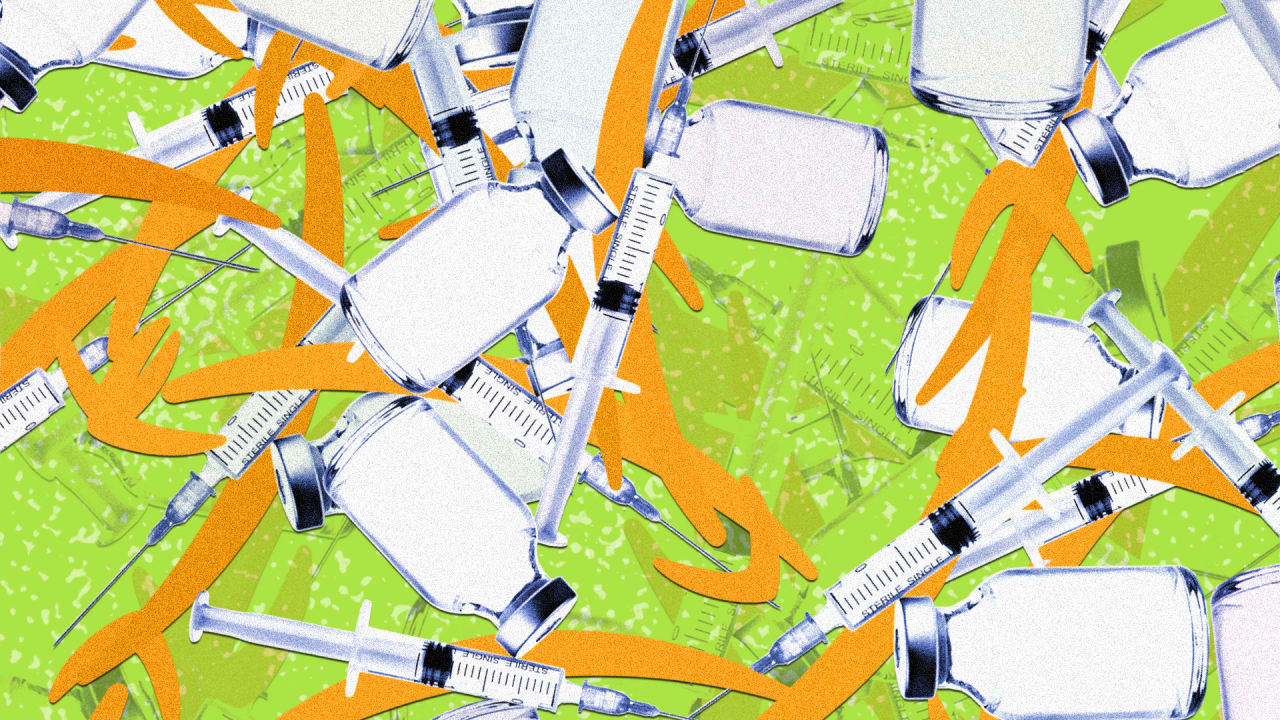Search for “vaccines” on Amazon’s bookstore, and a banner encourages shoppers to “learn more” about COVID-19, with a link to the Centers for Disease Control. But the text almost vanishes amid the eye-catching book covers spreading out below, many of which carry Amazon’s orange “bestseller” badge. One top-ranked book that promises “the other side of the story” of vaccine science is #1 on Amazon’s list for “Health Policy.” Next to it, smiling infants grace the cover of the top-selling book in “Teen Health,” co-authored by an Oregon pediatrician whose license was suspended last year over an approach to vaccinations that placed “many of his patients at serious risk of harm.” Anyone Who Tells You That Vaccines Are Safe and Effective Is Lying , by a prominent English conspiracy theorist, promises “the facts about vaccination — so that you can make up your own mind.” There are no warning notices or fact checks—studies have shown no link between vaccines and autism, for instance—but there are over 1,700 five-star ratings and a badge: the book is #1 on Amazon’s list for “Children’s Vaccination & Immunization.” Offered by small publishers or self-published through Amazon’s platform, the books rehearse the falsehoods and conspiracy theories that fuel vaccine opposition, steepening the impact of the pandemic and slowing a global recovery. They also illustrate how the world’s biggest store has become a megaphone for anti-vaccine activists, medical misinformers, and conspiracy theorists, pushing dangerous falsehoods in a medium that carries more apparent legitimacy than just a tweet. “Without question, Amazon is one of the greatest single promoters of anti-vaccine disinformation, and the world leader in pushing fake anti-vaccine and COVID-19 conspiracy books,” says Peter Hotez, a pediatrician and vaccine expert at the Baylor College of Medicine. For years, journalists and researchers have warned of the ways fraudsters, extremists, and conspiracy theorists use Amazon to earn cash and attention. To Hotez, who has devoted much of his career to educating the public about vaccines, the real-world consequences aren’t academic. In the US and elsewhere, he says, vaccination efforts are now up against a growing ecosystem of activist groups, foreign manipulators, and digital influencers who “peddle fake books on Amazon.” Anti-vaccine titles dominate search results for “vaccines”; the first autocomplete suggestion is “vaccines are dangerous” (Amazon) Letting the truth loose The Seattle giant is known for a relatively minimalist approach to policing content. The goal, founder Jeff Bezos said in 1998, was “to make every book available—the good, the bad and the ugly.” Customer reviews would “let truth loose.” Amazon’s algorithms and recommendation boxes would make it a place where, as it says on its website, “customers can find everything they need and want.” These days, they can publish everything they want, too: Amazon’s self-publishing platforms allow authors to make paper books, audio books, or e-books. The latter, Amazon says , “takes less than five minutes and your book appears on Kindle stores worldwide within 24–48 hours.” Gradually, Amazon has taken a tougher approach to content moderation, and to a seemingly ceaseless onslaught of counterfeits, fraud, defective products, and toxic speech. The company says its automated and human reviewers now evaluate thousands of products a day to ensure they abide by its offensive content policies . For books, its prohibitions are brief and vague: material “that we determine is hate speech, promotes the abuse or sexual exploitation of children, contains pornography, glorifies rape or pedophilia, advocates terrorism, or other material we deem inappropriate or offensive.” Sometimes that includes health misinformation. In 2019, the company removed a number of titles that connected autism to vaccines after Rep. Adam Schiff wrote to Bezos to say he was concerned Amazon was “surfacing and recommending products and content that discourage parents from vaccinating their children,” citing “strong evidence” that vaccine misinformation had helped fuel a deadly measles epidemic in Washington that year. After the start of the pandemic, Amazon removed over one million fraudulent products related to COVID-19, including “cures” like herbal treatments, prayer healing, and vitamin supplements. It also pulled an unknown number of books that pushed pandemic conspiracy theories, and added banners linking customers to credible information for some search terms. January 6 led to another purge across Big Tech, and Amazon also pulled alt-right and QAnon merchandise for breaking its rules on hate speech. Later that month, it removed dozens of books promoting Holocaust denial, and finally removed the white supremacist novel The Turner Diaries . It even banned Parler from its cloud service, citing the right-wing social network’s lax content moderation. Despite its sweeps, however, Amazon is still flooded with misinformation, and helping amplify it too: A series of recent studies and a review by Fast Company show the bookstore is boosting misinformation around health-related terms like “autism” or “covid,” and nudging customers toward a universe of other conspiracy theory books.

Read the rest here:
How Amazon became an engine for anti-vaccine conspiracy theories